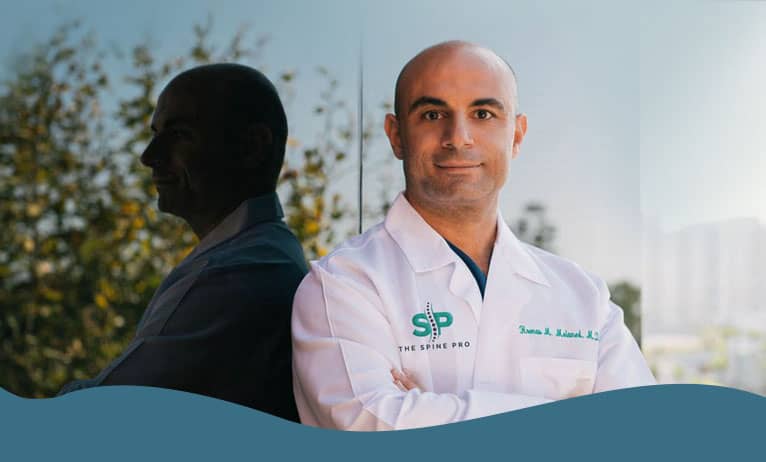What You Should and Shouldn’t Do After Spinal Surgery
From herniated discs to spinal stenosis, back pain often causes people to lose the ability to do the things they love. After having successful spinal surgery, you may be eager to go back out and live your life to the fullest. However, with a newfound sense of mobility comes a new set of guidelines to follow in order to ensure a safe and speedy recovery.
What Should You Do After Spinal Surgery?
After undergoing spinal surgery, you may wonder what you can do to help ensure a successful recovery without putting your spine at risk. Luckily, there are a few key things you may incorporate into your new post-operative lifestyle.
Get an Adequate Amount of Rest
This may seem like a no-brainer, but getting enough rest after your surgery is important. Depending on your procedure, your surgeon will likely give you specific instructions on how much rest you need. Using heating pads and ice packs may also be recommended while resting to help with any pain or discomfort you may experience.
In addition, getting enough sleep each night may help your body heal and reduce the risk of infection. So make sure you are getting a good night’s rest each night.
Do Light Exercises and Stretches
After your spine surgery, you will likely go to physical therapy to regain strength and mobility. Your physical therapist will share with you some light exercises and stretches you can do at home to help with your recovery.
Remember to consult with your surgeon or physical therapist before starting any exercise program, even if it is a light one. This will ensure that the exercises you are doing are appropriate for your individual case and will not put your spine at risk.
Prepare Your Post-operative Environment
After you have had spine surgery, it’s good to take some precautionary measures in your home to ensure your environment is as safe as possible. This may include removing any loose rugs or cords that you may trip over and ensuring that any furniture you have is sturdy and will not tip over if you lean on it too hard.
Having a friend or family member to help you around the house for the first few weeks after surgery until you get acclimated to your new level of mobility is also a good idea.
Be Mindful of Your Posture
Being mindful of your posture is good to do regardless of whether you have had spine surgery, but it is particularly important after surgical treatment. This means sitting and standing up straight and avoiding twisting or bending your spine in any way that may cause pain or discomfort.
If you find yourself slouching, make a conscious effort to sit or stand up straighter. It may take some time to get used to, but eventually, it will become second nature. Having good posture not only helps your spine heal properly, but it may also help to prevent future injuries.
Things To Avoid After Spinal Surgery
While there are many things you may do to help your spine heal after surgery, being conscious of what you should avoid is equally as important. These activities and habits may put undue stress on your spine and delay healing.
Don’t Skip Your Appointments
Even if you come out of surgery feeling ready to take on the world, it is important to follow your surgeon’s instructions and attend all of your post-operative appointments. These appointments are vital in ensuring you have a safe and successful recovery.
Your surgeon will likely want to see you for follow-up appointments to check on your progress and make sure that your spine is healing correctly. Furthermore, attending regularly scheduled physical therapy appointments is crucial for a successful recovery.
Be Careful Not To Over Exercise
Staying active and avoiding a sedentary lifestyle is essential for your recovery but knowing when to rest is just as key. Heavy lifting and strenuous activity may overexert your spine and delay healing. To be safe, only do exercises approved by your surgeon or physical therapist.
It may be a good idea to avoid movements and activities such as:
- Twisting your spine
- Lifting heavy objects
- Overhead arm movements
- Strenuous cardiovascular activities
Avoid Resting Too Much
After undergoing spine surgery, you may be inclined to stay in bed and rest for long periods of time, but this may do more harm than good. Too much rest may lead to muscle atrophy and prolong your recovery time.
Of course, as mentioned above, rest is still important, but try to get up and move around every few hours. This may help keep your muscles from weakening and promote circulation throughout your body. Having scheduled resting and activity periods may help you find a healthy balance between the two.
Avoid Using Tobacco
Using tobacco isn’t a healthy habit for anyone, but it is particularly harmful to those who have had spine surgery. Tobacco use and nicotine have been shown to reduce the rate of bone healing and may delay your recovery time.
If you smoke, it is best to quit before surgery. If you cannot do it alone, plenty of resources are available to help you quit. Speak with your doctor about what options are best for you.
Don’t Rely on Pain Medication
As you are on your road to recovery, you may be tempted to take pain medication to get you through the tough days. However, getting into the habit of taking pain medication may lead to dependence and adversely affect your health.
There may be days when the pain is more severe, and you’ll want to use a pain reliever. However, using opioid medications to relieve pain should be avoided due to the potential risks they pose. If you decide to use pain medication, try sticking to over-the-counter options like acetaminophen.
Visit The Spine Pro
Are you suffering from a spinal condition and not sure what to do next? By visiting The Spine Pro, you may be on your way to finding relief.
The founder of The Spine Pro, Dr. Hooman Melamed, is a renowned spine surgeon who has helped countless patients improve their overall quality of life. Make an appointment at The Spine Pro today to see what treatment options are available for you.





